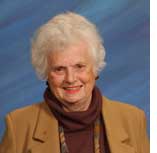|
By Natasha Josefowitz, Ph.D
 LA JOLLA, California—You swing gently on your trapeze somewhere near the top of the circus tent. It’s comfortable and secure, and then you see the next trapeze hurtling towards you. As you gage the time and the distance, you have to decide when the appropriate moment will come for you to leave the safe bar you’re hanging from and leap into the void, arms outstretched to grasp the empty bar as it swings towards you. LA JOLLA, California—You swing gently on your trapeze somewhere near the top of the circus tent. It’s comfortable and secure, and then you see the next trapeze hurtling towards you. As you gage the time and the distance, you have to decide when the appropriate moment will come for you to leave the safe bar you’re hanging from and leap into the void, arms outstretched to grasp the empty bar as it swings towards you.
While you’re hurtling through the void, that moment between the two trapezes, that moment when you could either fall and hurt yourself or grasp the bar and haul yourself onto it for another safe and secure time—in that moment you’re in transition. If you stay too long on your comfortable trapeze, you will become sedentary, fat, bored, and eventually depressed. So, at some point you will have to make the leap. We all have hurled ourselves into outer space, into unknown territories: every time we have changed jobs, gotten married or divorced, experienced the death of a loved one, given birth to a child, started a relationship, moved to a new location, or changed a lifestyle.
But as we grow older, we tend to hang on to the more familiar. It becomes more of an effort to let go of one’s trapeze in order to catch the next one. We are less confident of flying through the air, of living in that time, of transition, and of leaving the known to explore the unknown. We are indeed less nimble, less resilient, more attached to the old ways. Yet, our salvation is to keep jumping, arms outstretched into the new—yes, our salvation against aging brains, stiff bodies, dull routines, unsatisfying relationships, and diminished lives.
Go to the top of right column |
|
It’s imperative for us all, as we go through life’s stages, to not be afraid of transition: that nowhere place we find ourselves as we leave the familiar and are not yet acquainted with the unfamiliar.
As I am advancing further and further into older age, I must change my life from working to volunteering, from living with easily satisfied young grandchildren to more-difficult-to-understand teenagers and young adults, from demanding adventure travel to cruise ships, from eating anything and everything to being careful about correct nutrition, from having parents to not having any older relatives left and getting to know better the sometimes neglected younger cousins. There are both unavoidable losses and newfound gains.
As we grow older we must become more aware of the changes we need to make in our lifestyles. The over-85 group is the fastest growing segment of our population. When the baby boomers enter their senior years, one in five Americans will be over 65. If we want to age healthily and productively, we absolutely must exercise our bodies and our minds. Successful aging is determined by lifestyle choices more than by heredity.
So get out and walk everyday; do strength training, which means weight-bearing exercise; do a daily stretching routine; eat your fruits, vegetables, and whole grains; use low-fat dairy products; go easy on meats, fats, and sweets. Find interesting friends to spend time with. Learn something new—the more difficult, the more your brain will grow new synapses. And most of all have fun. I send and get jokes every day on my e-mail, so I start my mornings by chuckling. Laughter is good for our immune system. Volunteering has also been shown to improve the immune system and increase longevity. So, get out in your community and be helpful.
In other words, leave your trapeze and jump to grasp the next one. Even if you fall at first, there is always a safety net you can bounce back up from. Keep moving your body and expanding your mind and you’ll fly through the air with the greatest of ease, the daring old person on the flying trapeze.
|

